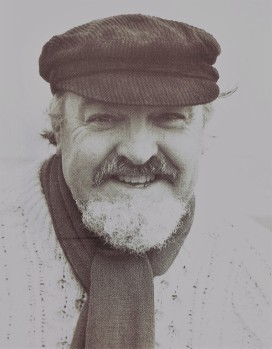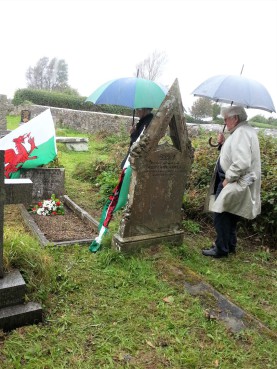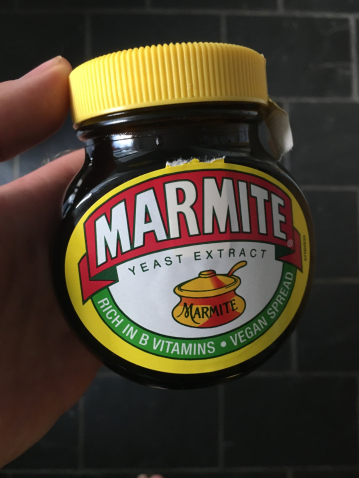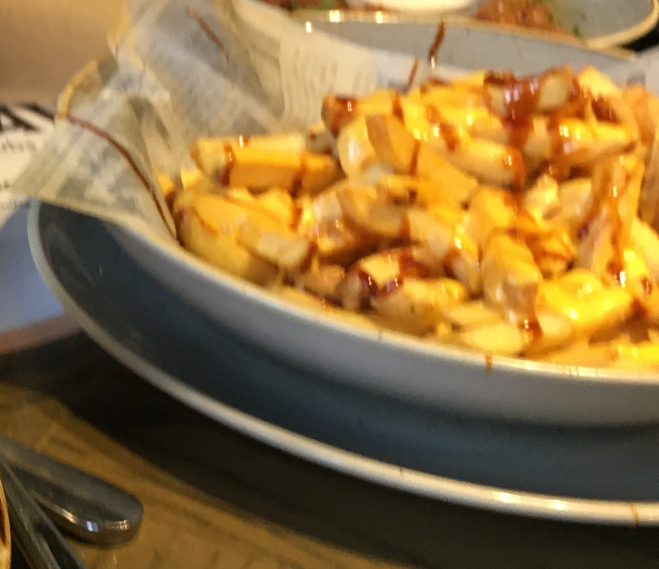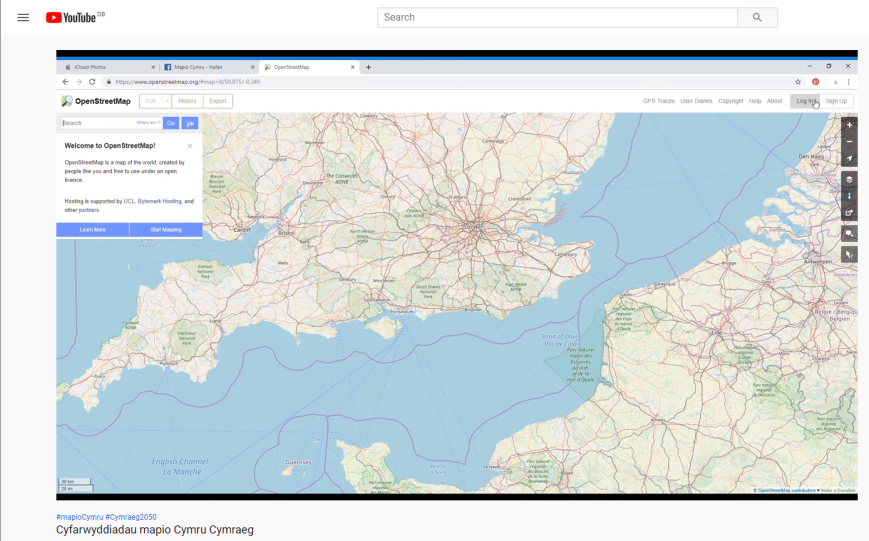
blog dai lingual
Real Madrid v Bayern Munchen 2024
( English versions follow Cymraeg, text in bold are usable translations of some of the jargon : )
COFIO HARRI WEBB
Nodwyd canmlwyddiant geni'r bardd gwladgarol nodedig Harri Webb gyda seremoni pan roddwyd blodau ar ei fedd yn Eglwys y Santes Fair, Penard, Gŵyr (12 o'r gloch Dydd Dydd Llun 7 Medi 2020).
Ganwyd Harri Webb yn 45 Tycoch Road, Abertawe a'i fagu yn Catherine Street ger canol y ddinas. Roedd gydag ef gysylltiadau teuluol cryf â Phenrhyn Gŵyr.
Daeth yn ffigur amlwg ym Mhlaid Cymru, gan olygu papur Saesneg y mudiad Welsh Nation a sefyll yn ymgeisydd drosti yn etholaeth Pontypŵl yn etholiad cyffredinol 1970.
Enillodd Harri Webb fri yn fardd yn ystod y 1960au, pan ddechreuodd y mudiad cenedlaethol gynyddu yng nghymoedd diwydiannol y De, a bu'n gyfrannwr rheolaidd i'r cylchgrawn Poetry Wales.
Dywedodd yr Athro Emeritws Prys Morgan fod Harri Webb wedi llwyddo ennill poblogrwydd mawr fel bardd.
"Er bod ei waith yn bennaf yn Saesneg, doedd neb yn fwy o Gymro twymgalon na Harri ".
Rhoddwyd blodau ar y bedd gan Guto Ap Gwent, Kittle.
Noddwyd y seremoni gan Gymdeithas Hanes Plaid Cymru a'r Blaid yn Abertawe a Gŵyr gyda chydweithrediad caredig Ficer Plwyf y Tri Chlogwyn, y Parchedig Peter Brooks a'i chynnal yn ôl y rheolau ymbellhau cymdeithasol.
HARRI WEBB COMMEMORATION
The 100th anniversary of the birth of the celebrated nationalist poet Harri Webb has been marked with the laying of flowers at his grave at St Mary's Church, Pennard, Gower (12 noon Monday 7 September 2020).
Harri Webb was born in Swansea at 45 Tycoch Road and grew up in Catherine Street near the centre of the city. His family had strong links with the Gower peninsula.
He became a leading figure in Plaid Cymru, editing the party's newspaper Welsh Nation and standing as its candidate at Pontypool in the general election of 1970.
Harri Webb came to prominence as a poet during the 1960s, when political nationalism was beginning to make headway in the industrial valleys of South Wales, and became a regular contributor to the magazine Poetry Wales.
The gathering at Pennard was told by Emeritus Professor Prys Morgan that Harri Webb had succeeded in achieving great popularity as a poet.
"His work was mainly through the medium of the English language, but no-one was a more warm-hearted Welshman than Harri Webb".
Flowers were laid at the grave by Guto Ap Gwent, Kittle.
The ceremony was promoted by the Plaid Cymru History Society and Swansea and Gower Plaid Cymru with the kind cooperation of the Rev Peter Brooks, Vicar of the Parish of Three Cliffs, and conducted in adherence with current social distancing regulations.
Whether Harri is still of the view that Wales is "Looking up England's Arsehole" is currently unclear, although a few more months of lockdown and then the beginning of Brexit should solidify it.
Photos: 1.) Harri Webb (1920-1994) 2.) Guto Ap Gwent and Professor Prys Morgan at the grave of Harri Webb after the ceremony in St Mary's Church, Pennard
Dydd Gwener 14eg Awst 2020 : Friday 14th August 2020
O ble daw "marmite"? : Where does "marmite" come from?
A wyddoch chi...bod Marmite yn dwyn ei enw o air Ffrangeg o’r un sillafiad, sy’n golygu crochan coginio?
Mae’r dyddiau du sy’n ein hamgylchu ni yn bresennol yn ein gwthio tuag at bob math o ddiangfeydd, a nawr ein bod ni bron wedi dod i arfer efo’r argyfwng cyfredol, mae’n amser i edrych ar beth fydd yn ein helpu ni dygymod gyda phen tost parhaol y Govid.
Mae’r cyflwynwr Jeremy Clarkson – sydd yn ei hun yn dipyn o ‘Marmite’ fel petai – eisoes wedi hybu rhinweddau fitamin B i waredu pen tost wedi noswaith o ddiota a dyna yn wir oedd prif rinwedd Marmite yn wreiddiol, gan taw dyna’r unig fwyd a oedd yn cynnig fitamin B. Gan ei fod yn “trendio” yn barod yr wythnos hon oherwydd ei ddatganiad blynyddol am ei ganlyniadau gwael yn ysgol, roedd ei sylwadau bod y bobl wnaeth bleidleisio dros Brexit yn “idiots” wedi dod i frig y sylw/adau hefyd.
Diddorol nodi bod Marmite yn ryw fath o symbol o’r hyn mai nifer yn credu sydd yn hollol Brydeinig, ond er taw yn Stoke-on-Trent cafodd ei greu yn gyntaf, Justus Freiherr Von Liebig wnaeth ddyfeisio Marmite yn wreiddiol yn yr Almaen, ac enw Ffrangeg sydd ganddo.
Felly mae yna dipyn o le i ddiolch i’n ffrindiau Ewropeaidd. Beth fydd y datrysiad i ben tost mawr Brexit tybed?
Dydd Gwener 14eg Awst 2020 : Friday 14th August 2020
Where does "marmite" come from?
Did you know…that Marmite gets its name from the French word for ‘pot’ (a cooking pot!) of the very same spelling?
The dark days that surround us are pushing us to all kinds of escapism, and now that we’ve nearly got over the novelty of the lockdown life where the wine merchants were still delivering, now’s a good a time as any to consider how we’re going to get over the hangover.
Clarkson, who is certainly a ‘Marmite’ figure – has already extolled the virtues of vitamin B as the “god Vitamin” partly because of its feelgood effects after over-indulging on the vino; and indeed originally Marmite’s main appeal was the fact that this was the only foodstuff which offered large amounts of the B goods. Jeremy was already trending this week due to his annual reminder of how poorly he did in his exams, so his latest outburst – mercifully nothing worse than blasting Brexit voters as “coffin-dodging idiots” – got plenty of attention too.
It’s worth noting that Marmite is often upheld as a symbol of True Brit, and although it was first made in Stoke-on-Trent (to be near the breweries from where it extracted its yeast) the man who invented this yeast extract was none other than the German Justus Freiherr Von Liebig , and it has a French name mais oui.
So we should indeed be saying merci to the French language at least, and danke to Germany for bringing us the brown stuff we love to hate. But what will the cure for the Brexit hangover be?
Dydd Gwener 7fed Awst 2020 : Friday 7th August 2020
Pam taw Aberystwyth yw tref orau Cymru : Why Aberystwyth is Wales' finest town.
Dw i’n byw ger Penarth, un o drefi mwyaf llewyrchus Cymru, medde nhw. Oni bai am Y Bontfaen, does yna fawr o drefi sy’n cael eu hystyried mor “posh â Phenarth”.
Felly, nid acen ‘Cardi’ sydd gan fy mhlant i. Nid acen Cardi sydd gen i yn feunyddiol chwaith, i ddweud y gwir — er serch 'ny ma’ dyn yn gallu troi i’r Cardi yn ddigon cloi i drio hela’r plant i wherthin ambell waith; fel nes i'r wythnos hon — ambell waith — wrth ddychwelyd i fro fy ieuenctid Ceredigion er mwyn dathlu digwyddiad teuluol.
Mae’n debyg y bonheddig-wyd Penarth wrth i berchnogion y llongau a oedd yn cario glo de Cymru dros y byd i gyd ddeisyfu wylio’r llongau yn gadael porthladd Caerdydd heb orfod codi o’r bwrdd brecwast – ac felly pen-y-garth (sef diwedd y clogwyn, fel bydde Cardi yn dueddol o ddweud!) oedd y man perffaith i wneud hynny.
Ceir rhinweddau yn gyffredin i’r ddwy dref sydd yn rhan annatod o’m mywyd i erbyn hyn, sef yn naturiol Penarth a bro fy ieuenctid Aberystwyth:
-
Promenad bonheddig sy’n adlewyrchu’r haul at wyneb y cerddw/yr – petai haul i ga’l wrs gwrs!
- Meddylfryd dosbarth canol, cymunedol.
Tref ddigon hyderus i gael ei enwi gan yr afon anghywir yn rhedeg trwyddi yw Aberystwyth, gan taw'r afon sy’n pasio heibio Penparcau ac yna’n ymdroelli o dan bont Trefechan yw’r Rheidiol wrth gwrs, tra bod yr Ystwyth yn ymlwybro yn ystwyth i’r môr heb drwbli unrhyw leoliadau gwaraidd neu anwaraidd.
Pam felly fy mod i ar hyn o bryd yn parhau i ystyried Aberystwyth megis tref orau Cymru? (Gydag Aberaeron yn ail o bosib)
I fod yn blwmp ac yn blaen, y wahaniaeth fwyaf rhwng Bro Morgannwg â Cheredigion yw presenoldeb gweledol yr iaith; ym Mhenarth doedd perchnogion 'Penarth Pier Pavilion' methu gweld y buasai hyd 'n oed ychwanegu 'Penarth' ychwanegol ar ddiwedd eu harwydd uniaith Saesneg rywfaint yn well na beth sydd i'w weld yno; tra yn Aberystwyth mae hyd yn oed y posteri nad sy'n barhaus yn defnyddio’r Gymraeg nid dim ond yn gywir ond hefyd yn gywrain a chynnil (chwedl Alun Jones Penweddig gynt).
Wrth yrru ar hyd y stryd yn Aber nes ddigwydd gadael i’r Cynghordd Ellen Ap Gwynne — sydd wedi arwain Ceredigion i sefyllfa mor dda yn yr anghydfod presennol fel ei bod yn beryg o fod yn mangre i bobl i ymweld am resymau iechyd — basio ar draws y ffordd y tu flaen i'n car. Ro'n i'n gyrru trwy'r dref gyda chap a sbectol arno, fel dwi'n dueddol o wneud gan amlaf yn ystod wythnos gyntaf Awst ac felly ddim wedi pwdi nad oedd hi'n adnabod fy wep [ a hithau yn cyn-reolwr arnaf i yn ystod fy nyddiau Radio Ceredigion ar ddiwedd y ganrif ddiwethaf]. Dyna hefyd yw fy ngwisg call ac ymarferol bob blwyddyn ar gyfer Maes yr Eisteddfod, gan fod sbectol haul a chap nid yn unig yn gwneud y tro yn iawn o ran cadw heulwen tanbaid Awst oddi ar ben dyn, ond hefyd yn arf seicolegol cryf wrth i bobl chi'n nabod yn dda iawn basio heibio chi hen ddweud hylo (nid dim ond fi sy'n cael hynny?) AC hefyd yn ddigon o wisg i osgoi ambell un yn yr un arddull. Wrth reswm y wisg orau oll ar gyfer hynny gwisg Derwyddon yr Orsedd, gan obeithio eu bod yn cael defnydd da iawn o'u gwisgoedd gwyrdd, gwyn a choch yn ystod yr argyfwng presennol. Ymarferol iawn, fe dybiwn i.
Ta waeth, yn ôl i ardal Aberystwyth â ni, ac amser i edmygu dyfeisgarwch y Cardi: ceir hefyd rîff artiffisial sy’n cadw'r Borth yn fyw ac er braidd yn ling-di-long yw'r amrywiaeth o bensaernïaeth, dyma le mae fy nghalon yn parhau i drigo.
Wrth gwrs y gwir yw taw Ceredigion yw fy hoff fro achos fan yna yw fy nghartref ysbrydol, ond gyda lwc fe fydd Y Fro yn gwella ei hagwedd at yr iaith cyn bo hir ac felly fe fyddaf i yn gallu galw Penarth yn gartref glud a chynnes imi un diwrnod, pan ddaw haul ar fryn.
Why Aberystwyth is Wales' finest town.
A Tale of Two Towns?
I live in near Penarth, one of Wales’s most salubrious towns – it’s a bit POSH apparently, according to one
of my father’s jokes from his childhood (difficult though it is to imagine that such a thing ever existed):
POSH voice: Why don’t people have "sex" in the living room in Penarth?
Cardi-esque voice: Because that’s where they keep all their coal!
Probably works better aurally so to speak — as it’s pretty dependent on the interplay between how “sex” sounds similar to “sacks” when pronounced POSH…i.e. what's actually said is:
POSH voice: Why don’t people have sacks in the living room in Penarth?
Cardi-esque voice: Because that’s where they keep all their coal.
...anyhow in order to change the course of this blog, the acronym POSH is apparently based upon rich people’s preference for a cabin that was “Port Outward Starboard Home” in colonial days, so that they could always catch the sun through their cabin hole.
And not not coincidentally Penarth is where the POSH people of the industrial revolution came to see their coal leave Cardiff on ships to all over the world without ever having to leave their breakfast table and/or veranda.
My children will have the Penarth accent of course, thank goodness they speak Welsh as well or I would be worried.
There attributes common to the two towns that have played the largest roles in my life — Penarth and Aberystwyth:
-
A prom prom prom – [where the brass bands no longer play tiddly-om, pom pom.]
- Well-meaning middle class people working together as a community, which does make me feel at home I suppose.
Aberystwyth is such a single-mindedly individual place that it is named not after the river that flows through the town passed Penparcau and under Trefechan bridge but the Ystwyth, that flows steadily untroubling any civilisations at all before nearly hitting the mouth of the river Rheidol at the harbour – the harbour at least is really is “Aberystwyth” then. [ Aber = mouth of the river, quite often an estuary but not so much in Abergavenny or Brecon’s Aberhonddu where tributaries hit their tribute]
One of the major differences between the two towns is the status of the Welsh language, in Penarth, Penarth Pier Pavilion is emblazoned proudly monolingual across the entrance of the aforementioned, without even a second Penarth at the end of the titles to pretend that it’s vaguely bilingual , while in Aberystwyth there’s a poster of the same size hanging from their Pier (don't mention the starlings) that not only uses Welsh colloquially but also correctly; and not because it's been funded by the local county council (which the Penarth Pier most likely was) but because that it makes sense economically because it attracts more custom.
As I manoeuvred down the prom in Aber, who didn’t I nearly run into (similarly to the Eisteddfod I was wearing shades and baseball cap so I couldn’t be recognised but if I wasn’t then I’d put it down to the aforementioned) but Ceredigion County Council leader Ellen ap Gwynne who has led Ceredigion so well during the current crises that there is the very real threat of attracting health tourists.
There is also much to be admired in the inventivess of the creative Cardi: like an artificial reef which is keeping Borth safe despite the fact that it still looks a bit like the work of designing the architectural style of Borth has been assigned to architecture students between the ages of 0-7. This where my heart continues to beat strongest, I used to wonder why Borth beach doesn’t attract more visitors but to be fair maybe Aber's South Beach is catching up somewhat as it is now replete with lifeguards.
Of course the truth is Aberystwyth is my favourite town because it was my stomping ground, my habitat. Maybe one day Penarth Pier Pavilion will be called Penarth Pier Pavilion Penarth and I can enjoy going in to watch a film there with a clear conscience...if they're still showing films in the future of course, although that's another story.
Have a good week and stay safe.
Dydd Gwener 31ain Gorffennaf 2020 : Friday 31st July 2020
Y Gymraeg yw iaith fyw hynaf yr ynysoedd yma : Welsh is the oldest living language on these islands
Rydym wedi arfer gyda gwybod mai y Gymraeg yw un o ieithoedd hynaf Ewrop. Bu yna farddoniaeth adnabyddus yn y Gymraeg pedair canrif cyn i'r Normaniaid lanio. Ond, yw henaint cymharol y Gymraeg yn peri i ni anghofio bod y broses o ddatblygu Saesneg fel prif iaith Lloegr – ac yn dilyn hynny, Byd Newydd America ayyb – yn wreiddiol yn gymysgedd bachog o Hen Saesneg (sef math o Almaeneg i bob pwrpas) a Ffrangeg William a'i griw? : ble oedd yna gyfle i symleiddio'r eirfa, fe'i cymrwyd pob tro. Er enghraifft, pysgod: beth sy'n haws i'w ynganu? - "poisson" Français neu "Fisch" Deutsch? "Fisch" wrth gwrs: felly 'fish' yn wir yw pysgod yn Lloegr ac felly America heddiw. Gwenieithu yw galw'r Gymraeg yn "un o ieithoedd hynaf Ewrop", sy'n anwybyddu ffaith fwy pwysig o bosib: sef taw'r Gymraeg yw'r iaith fyw hynaf yn yr ynysoedd yma, Ynysoedd Prydain. Mae'r ymadrodd "Ynysoedd Prydain" yn codi gwrychyn sawl un wrth gwrs, sy'n esiampl ddifyr o ba mor ymfflachymol mae enwau llefydd. Mae ein prosiect @mapioCymru yn cynnig datrysiad arlein i'r rhwystredigaeth a deimlir gan selogion yr iaith trwy gynnig hafan arlein i bobl cymryd camau cadarnhaol i hyrwyddo enwau Cymraeg ar ein map arlein o Gymru sef openstreetmap.cymru trwy ddefnyddio gwefan osm.org .
Welsh is the oldest living language on these islands.
We're used to knowing that Welsh is one of the oldest languages in Europe. To some extent this ignores the slightly more obvious, but less shared fact, that by a simple process of elimination Welsh must the oldest living language on these islands, the so-called British Isles. According to a forthcoming book by Dr. Huw Williams, Ysbryd Morgan one of the reasons the moniker "British" began to be used around the time of Empire-building under (had a Welsh grandfather!) Elizabeth the First was in order to take advantage of Wales' legendary history. In the current climate, does this Elizabethan-era tactic bring to mind Donald Trump's dangerous "America First" notion?; as here was a recently formed country with no substantial history of its own eager to find and build its own place in history; and so embraced and emphasised one facet of an already totemic culture in order to build an Empire around it. Only that, the "British" Empire was seeking justification for how and why it thought it knew best - certainly better than what's now referred to as The Third World - whereas Trump seeks to bring his hegemony to what used to be referred to with the rather euphemistical (and historically relatively calm) "Melting Pot" nation. Naming empires, and place names themselves has always been something of a political hot potato - if not an actual minefield - and the @mapiocymru project offers a peaceful solution to the ongoing Welsh debate/s by offering a haven for people to add Welsh place names to our online (Welsh government sponsored) map openstreetmap.cymru via OpenStreetMap.org .
